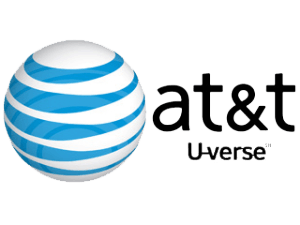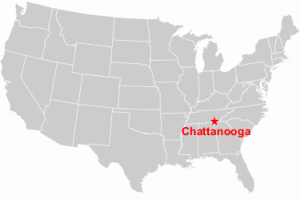 AT&T’s fiber to the neighborhood service is not exactly winning consumers over in Chattanooga, Tenn. As of this past spring, AT&T only managed to convince 821 local customers to sign up for U-verse service, in part because the competition delivers faster service, and one doesn’t slap broadband customers with an Internet Overcharging scheme.
AT&T’s fiber to the neighborhood service is not exactly winning consumers over in Chattanooga, Tenn. As of this past spring, AT&T only managed to convince 821 local customers to sign up for U-verse service, in part because the competition delivers faster service, and one doesn’t slap broadband customers with an Internet Overcharging scheme.
While Comcast remains the dominant cable company in the city with more than 100,000 customers, community-owned EPB Fiber has made major advances, primarily against Comcast, picking up at least 33,000 customers in the city since the summer of 2010.
EPB is turning into a major success story for community-owned broadband, typically maligned as a financial failure by cable and phone company competitors. EPB offers residential customers usage cap free gigabit broadband, television, and telephone service and is competing effectively against the nation’s largest cable operator.
EPB has been raking in more than $3.8 million a month in telecommunications revenue from residential customers alone. In less than two years, EPB, which also delivers electricity in Chattanooga, has built a $45 million a year telecommunications business. As a community-owned utility, most of that revenue stays in Chattanooga, benefiting the local economy and allowing EPB to reinvest in its network and improve service.
 Comcast, in contrast, has seen its revenue drop by 8.4 percent during the first six months of 2011, primarily because of departing customers. That has forced the dominant cable company to become more aggressive in its efforts to retain those calling to cancel, primarily by slashing prices if wavering customers agree to stay.
Comcast, in contrast, has seen its revenue drop by 8.4 percent during the first six months of 2011, primarily because of departing customers. That has forced the dominant cable company to become more aggressive in its efforts to retain those calling to cancel, primarily by slashing prices if wavering customers agree to stay.
Remarkably, AT&T’s U-verse has merited also-ran third place status — the victim of limited availability, the ongoing trend of customers dropping landline service, and the far-superior broadband speeds available from the competition. AT&T’s Internet Overcharging scheme is also the stingiest, limiting broadband customers to just 150GB for its DSL service, 250GB for U-verse broadband, charging overlimit fees when the caps are exceeded. Comcast has a usage cap of 250GB with no overlimit fee. EPB has no limits.
The Chattanooga Times Free Press compares all three providers’ strengths and weaknesses:
AT&T — Very aggressively priced introductory offers, more HD channels than its competitors, plus a “quad-play” bundle that includes AT&T wireless service. But AT&T’s landline network is still the least equipped to compete on broadband speed, an increasing number of residents continue to turn their back on AT&T when they cut landline service, and U-verse’s usage caps come with overlimit fees.
Comcast — Has a substantial number of on-demand programs to access, can be cheaper than EPB during the initial year of service, and is testing home security and automation services. Also offers two-hour service call windows and aggressively priced retention deals. But Comcast’s regular prices are high, its broadband service usage-limited, and its reputation questionable after more than a decade of rate hikes and service complaints.
EPB — The fastest broadband speeds anywhere, EPB runs an advanced fiber to the home network, and maintains a very aggressive attitude about expanding and improving service. EPB is a formidable competitor. Community-0wned, its service benefits local residents with a locally-staffed call center, revenues that stay in Chattanooga, and management that answers to customers, not Wall Street. No caps either. But EPB can be a harder initial sell for price-sensitive customers because it doesn’t offer heavily discounted service to attract new customers. But EPB prices don’t rise dramatically after the first year, either. EPB’s television lineup is less robust than others, in part because it lacks a nationwide presence that brings the kind of volume discounts AT&T and Comcast receive.


 Subscribe
Subscribe




